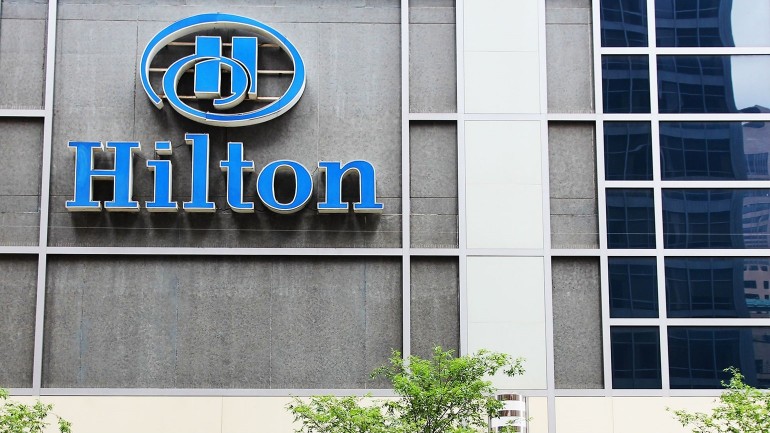Sponsored Listings:
Travel companies have for years focused on green, sustainable tourism programs and social responsibility, not just because they were considered the right things to focus on but because they make good business sense. But increasingly, those same qualities are also seen as key to recruiting both guests and employees, particularly millennials.
A key bit of evidence could be found in Hilton’s announcement last week of an aggressive new program to follow the Paris Agreement by cutting its environmental footprint in half. It also pledged to double its social impact investments by 2030.
The program underscores the importance Hilton places on corporate social responsibility in recruiting and retaining millennial employees.
“Today’s labor pool is a challenging labor pool,” said Max Verstraete, Hilton’s vice president of corporate responsibility. At present, he said, half of Hilton’s 380,000 workers around the globe are millennials.
“These younger generations, they want their employers to do the right thing,” Verstraete said.
“They are more likely to stay with a company that is doing the right thing. They are more likely to stay and to be engaged. This is a very important business reason for doing these things.”
A number of recent research reports underscore just how important corporate social responsibility is in the minds of young workers.
The 2016 Cone Communications Millennial Employee Engagement Study found that 76% of millennials consider a company’s social and environmental commitments when deciding where to work. Nearly two-thirds, or 64%, said they would not take a job with a company that lacks strong corporate social responsibility programs.
And the just-released seventh annual Millennial Survey from Deloitte suggests those feelings are only growing stronger, finding that millennials have become more skeptical overall of the motivations and ethical practices of the business world.
Deloitte global CEO Punit Renjen said the results should “be a wake-up call to leaders everywhere. These cohorts feel business leaders have placed too high a premium on their companies’ agendas without considering their contributions to society at large. Businesses need to identify ways in which they can positively impact the communities they work in and focus on issues like diversity, inclusion and flexibility if they want to earn the trust and loyalty of millennial and Gen Z workers.”
In unveiling its plan, Hilton said it will become the first major hotel chain to release science-based targets for reducing carbon emissions. At the same time, it will double its investment in global initiatives such as sourcing from local and minority-owned suppliers and programs to empower women and young people.
The company also set targets for banning plastic straws and water bottles and sending zero soap to landfills.
As part of the announcement, Hilton released results of a May survey of 72,000 Hilton guests that found social, environmental and ethical considerations are central to their buying preferences, particularly among travelers under 25.
Hilton CEO Christopher Nassetta said, “For nearly 100 years, Hilton has been driven by our mission to have a positive impact on the communities surrounding our hotels. In this golden age of travel, we are taking a leadership role to ensure that the destinations where travelers work, relax, learn and explore are vibrant and resilient for generations of adventurers yet to come.”
Hilton’s program, called 2030 Commitments, follows a call in April by Nassetta as chairman of the World Travel and Tourism Council (WTTC) to commit to following the Paris Climate Agreement and incorporate its objectives into actionable science-based targets.
Since President Trump last year announced the U.S. withdrawal from the accord, more than 2,700 governments, companies and groups have signed on to a “We are Still in Movement,” committing to the Paris Agreement despite the official withdrawal.
The list of signatories is impressive and includes a number of global companies. But other than Lindblad Expeditions, Vail Resorts and several smaller ski companies and resorts, the travel industry, including Hilton, is largely absent.
Still, Nassetta was applauded for standing behind his commitment at WTTC to lead by example.
“The World Tourism Organization
(UNWTO) commends Hilton’s focus on sustainability, which is in line with our overall commitment as the U.N.’s agency that is dedicated to promoting sustainable tourism for development worldwide,” said Zurab Pololikashvili, secretary-general of the
UNWTO. “Hilton has been our partner in this endeavor, raising awareness among customers with examples of best practices for the hospitality industry.”
Sheila Bonini, senior vice president for private-sector engagement at the World Wildlife Fund, said companies “play an integral role in solving our climate crisis. By committing to significant-intensity emissions reductions based on science, Hilton is setting in motion a plan that will have ripple effects across the hospitality industry while providing more sustainable options for travelers.”
Hilton didn’t put a price tag on the initiative, although Verstraete said the company’s current investment in the social programs alone is in the tens of millions of dollars.
As for energy-saving programs, he said hotel owners long ago learned they were well worth the return on investment, revealing that Hilton estimates that cumulative energy, water and waste efficiency programs have saved the hotels and the company more than $1 billion since 2008
Source: travelweekly.com










